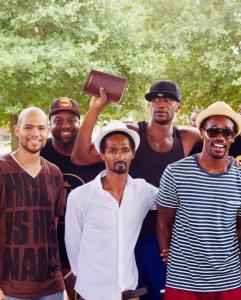Feuding Brothers
Our culture is deeply divided into two warring entrenched teams, the left and the right, that despise one another. As a result, seemingly every issue that arises explodes into an online prison riot complete with mattresses on fire and the guards who try to calm things down getting shanked.
There’s a Bible story that mirrors the situation in our culture. It is a story most people know—one of the best known tales in the history of world literature. Our shorthand name is the “Parable of the Prodigal Son” (Luke 15:11-32). The beginning of the story revolves around a younger brother who insulted his father by demanding his inheritance early, more or less wishing that his dad was already dead. This rebellious son took his money and squandered it in the usual way—eat a lot, drink a lot, and sex a lot until you hit rock bottom. This Jewish boy wound up flat broke, hung over, and eating slop with pigs.
Everyone knows that a “prodigal son” is someone who has wandered off down some destructive road. But in the story there are actually two lost brothers. One hit the road. The other got lost at home. Outwardly the older brother seemed to comply with all of his father’s wishes. This religious son looked like he was doing everything he was supposed to. But inwardly the older brother burned with anger that he was working hard while his younger brother was partying hard. When the rebellious brother comes to his senses and runs home, the religious brother’s resentment boils. When the father welcomes the rebellious brother home, the religious brother explodes. He lists all the ways he was right and his younger brother wrong.
The rebellious son resembles people we talked to in the focus groups. They might say, “I left my father’s house. I’m going to go do whatever I want to do. I don’t need my dad dictating what I can’t do. I want to sleep with her and him while drunk and put it on YouTube because I am done with guilt and God.”
As you consider your personal history you might identify with the rebellious brother. Or, perhaps you are more like the religious brother, a guy who resembles Christians who are pious, hardworking, upright, and uptight. His heart is pretty self-righteous. He is kind of full of himself. When people around us react against Christianity and the church, it is the religious son they have in mind. If we examine their caricatures of the church, that is what they are thinking. They look at this guy and say, “You’re a hypocrite. You’ve got your own stuff. You’re not as good as you think you are. You fake it better on the outside, but on the inside you’re not any different from us. What right do you have to judge us?”
And there the discussion ends. Two sons at odds. Communication is cut off. They talk about each other but never to each other. There is a solution to this impasse—the third son, the guy who told the story. Our hope is not in the religious son or the rebellious son but in the redeeming son, Jesus the Son of God. We will see more of the brothers’ unfolding story at significant points.
Like the story of the Prodigal Son, Christians and non-Christians are prone to talk about one another but not talk with one another. My attempt is to have a conversation with you about people’s problems with Christianity so that you can have similar conversations with others—maybe even with someone who wonders if you are crazy.
In this series of blogs, I will draw on the experience and expertise of top Christian thinkers and leaders who have carefully considered the objections raised by the un-churched and the de-churched. Once I had reviewed every bit of data from the phone surveys and every word transcribed from the focus groups, I undertook the third part of my research, tapping some of the brightest minds on the planet to get their insights about the issues. I conducted one-on-one mainly phone interviews with most of these experts which were then transcribed. A few chose to instead send emails. All were enlightening. Many of their quotes will be shared throughout this project to help explain, in a loving and compelling way, why biblical Christianity is both true and good.











